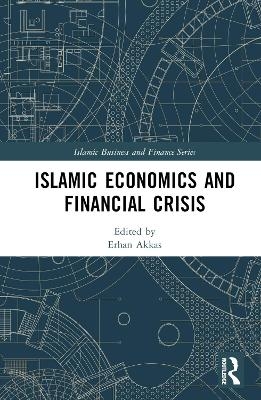
Islamic Economics and Financial Crisis
Routledge (Verlag)
978-1-032-81522-0 (ISBN)
- Noch nicht erschienen (ca. März 2025)
- Versandkostenfrei innerhalb Deutschlands
- Auch auf Rechnung
- Verfügbarkeit in der Filiale vor Ort prüfen
- Artikel merken
It includes theoretical and empirical analysis and assesses the resilience of the Islamic economic system and Islamic financial institutions in the face of economic and financial crises, with a particular focus on Organisation of Islamic Cooperation (OIC) member countries. Furthermore, the effects of these crises on income and wealth distribution are discussed. The book compares Islamic and conventional economics in response to economic crises, both across countries and financial institutions and provides a brief analysis of financial crises from a theoretical point of view, examining various approaches. It addresses the issue of the relevance of all these theories in relation to the present crisis and draws useful policy implications. Thereafter, it discusses how the Islamic financial system could serve to mitigate the occurrence of a financial crisis, since the prohibition of riba, maysir, and ghaarar transactions offer a solution to the financial crisis from speculative bubbles and crash. It also discusses some of the challenges facing the Islamic finance industry.
This is a useful guide for researchers and advanced students of Islamic Economics and Finance.
Erhan Akkas is an Associate Professor in the Department of Islamic Economics and Finance, Faculty of Political Sciences, Sakarya University, Istanbul, Turkey.
1. Rethinking Financial Crisis: From Neoclassical Economics to Islamic Economics 2. Resilience to Financial and Economic Crisis in an Islamic Economics Framework 3. Assessing the Influence of Financial Crises on Income and Wealth Distribution: Islamic Finance Perspectives 4. The Systematic Failures of the Current Economic System 5. A Comparative Analysis of Dow Jones Global and Dow Jones Islamic Indices' Performance During Crises 6. Debt-Driven Economic Crisis Prediction for OIC Countries: A Machine Learning Approach 7. Simulation of Shariah-Compliant, Conditional Currency Convertibility Based on Primary Commodities in ECO Countries to Avoid the Crisis of Fiat Currencies 8. How does economic uncertainty affect the financial performance and stability of Islamic and Conventional Banks in Hydrocarbon-based Rentier Economies? 9. Analysing the Varied Dynamics of Monetary, Oil, and Geopolitical Shocks across Different Crisis Periods: The Saudi Arabian Perspective
| Erscheint lt. Verlag | 13.3.2025 |
|---|---|
| Reihe/Serie | Islamic Business and Finance Series |
| Zusatzinfo | 34 Tables, black and white; 35 Line drawings, black and white; 35 Illustrations, black and white |
| Verlagsort | London |
| Sprache | englisch |
| Maße | 156 x 234 mm |
| Themenwelt | Sozialwissenschaften ► Soziologie ► Spezielle Soziologien |
| Wirtschaft ► Volkswirtschaftslehre ► Makroökonomie | |
| Wirtschaft ► Volkswirtschaftslehre ► Wirtschaftspolitik | |
| ISBN-10 | 1-032-81522-1 / 1032815221 |
| ISBN-13 | 978-1-032-81522-0 / 9781032815220 |
| Zustand | Neuware |
| Haben Sie eine Frage zum Produkt? |
aus dem Bereich


